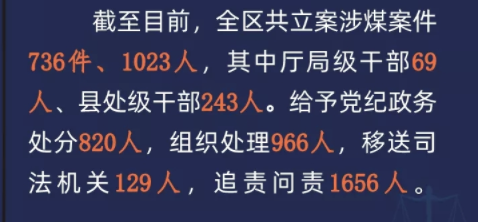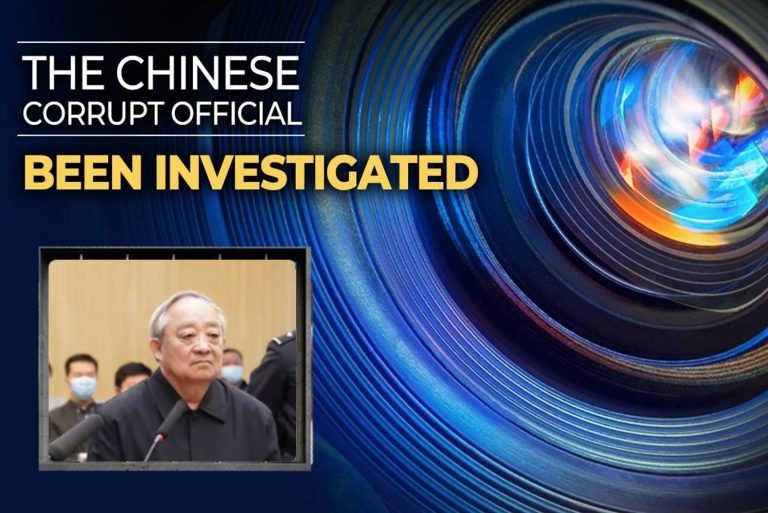On November 24, Yun Gongmin, the former secretary of the Communism Party Committee (CPC) of Erdos City, Inner Mongolia, and the Inner Mongolia provincial vice chairman, was accused of collecting more than 468.66 million yuan (US$73.39 million) through embezzlement and bribes.
On April 29, 2021, Yun Gongmin was investigated. According to sina.cn, Yun Gongmin’s case is the last trial of the “four tigers involved in corruption in [the] coal industry” in Inner Mongolia.
Before his case, the other “three tigers,” Bai Xiangqun, Xing Yun, and Yun Guangzhong, were sentenced to imprisonment or death with a reprieve. By corrupted means, Xing Yun and Yun Guangzhong collected 449 million yuan (US$70.31 million) and 94.32 million yuan (US$14.77 million) respectively.
Turned coal mines into a corruption chain
There is a coal mine under development near Hari Bulag temple site in Dongsheng District, Ordos city, Inner Mongolia, where the coal mine is mined in the name of a “Fire Extinguishing Project.”
According to sina.cn, in China, mining rights are taken usually by people with special connections in local political and business circles, who then subcontract or resell the rights. This is so-called Mine Trading, buying at a low price and selling at a high price.
Success
You are now signed up for our newsletter
Success
Check your email to complete sign up
It only costs a local businessman one or two hundred million yuan to get the coal mining rights. After two resales, it costs the outsider businessman about a billion yuan. Because of the enormous profits, officials get a vast “dividend” from the sale.
Because of the huge vested interest, digging coal mines and building power stations have become a landscape on a large scale on the Chinese prairie. The prairie gradually falls into the land of raging wind and sand.
Inner Mongolia is a large coal-producing province. The coal industry is considered the hardest-hit area by corruption. According to an insider, “Yun Guangzhong was the mayor and party secretary of Ordos city for three years, and flourished the Fire Extinguishing Project under his watch.”
Enriched themselves through coal mines, then bought powerful positions
According to an official who has worked in the coal industry, it’s common for one to get rich through coal mines then buy government positions with the profits. “In the 1990s, I was a town-level cadre. Once I followed the bureau chief to meet Yun Gongmin. There was hearsay that he might be promoted to be the vice chairman of Inner Mongolia. Our bureau chief went to congratulate him. Yun Gongmin made a gesture of counting money and said, ‘If you want to climb up, you have to use this.’”
It is said that a coal company once sponsored Yun Gongmin. After Yun rose up, when the local government levied the ‘maintenance simple re-production fee,’ his company was given a discount of seven yuan less per ton of coal, which was a substantial figure in the 1990s. The concession was implemented for more than a decade before it was eventually repealed around 2010.
The CCP Central Commission for Discipline Inspection and State Supervision Commission website had published an article, saying that “through enterprise restructuring and other ways, some leading cadres take the state-owned coal mines as of themselves, seizing huge profits.”
According to a source in the coal industry for the key leaders in departments or sections, they took money gifts during major holidays, especially during the Chinese New Year season. As for occasions such as the Mid-Autumn Festival and Chinese New Year, they would expect at least 50,000 yuan each time – this needed only if they had already had all the required documents and met all the compliances for a coal mining business. In reality, this is already hard to have, so you are bound to give them more gifts in money. As a senior person in the coal industry, gray expenses (bribes and other off-the-books expenses) usually account for 10 percent to 15 percent of all coal mining costs.
In November 2021, an article was published on the website of the Inner Mongolia Discipline Inspection Commission. The figures in the report show that since the campaign of “Tracing Back for 20 years” started, there have been a total of 736 cases and 1023 people involved in coal mine corruption, resulting in economic losses of 52.388 billion yuan (US$8.2 billion).

According to fawanghuihui.org, during his tenure as Secretary of the Taiyuan City Committee and Deputy Secretary of the Shanxi Provincial Committee, Yun Gongmin “promoted persecution policies, controlled the judiciary system, dominated the personnel appointments and dismissals, and promoted some hitmen who persecuted Falun Gong practitioners, making the persecution in Shanxi even worse.”
“By the end of 2015, according to incomplete statistics from Minghui.org, more than 510 Falun Gong practitioners were kidnapped and detained in Taiyuan city, Shanxi Province, more than 80 were illegally sentenced to prison, more than 80 were illegally re-educated through labor, and more than 100 were sent to brainwashing classes for persecution. Among them, thirty-two dead, five disabled, and four in madness.”














